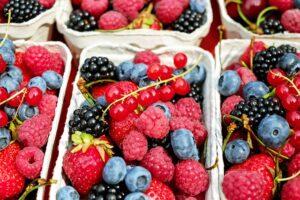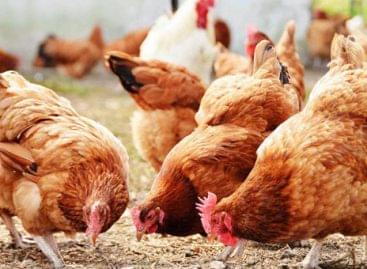Domestic berry fruit cultivation could be saved
Even though there is a demand for berries from consumers and the processing industry, domestic cultivation has been pushed into the background in recent decades. Partly due to climate change and partly due to the high demand for manual labor, berries are unfortunately being cultivated in a smaller and smaller area in our country. According to the overview of the National Chamber of Agriculture and the Hungarian Fruit and Vegetable Association (FruitVeB), there is an opportunity to develop the sector despite climate change.

(Photo: Pixabay)
This year, due to the warm winter and mild spring, nature hastened forward, and for most fruit species, the season has already started about 10-14 days before the usual start of the season. This is no different for berries: raspberries, blackberries, currants and mulberries also begin to ripen earlier. According to the overview of the National Chamber of Agriculture and the Hungarian Fruit and Vegetable Association (FruitVeB), a moderately good harvest of berries is expected this year. Although both consumers and the processing industry would demand it, the cultivation of berries has declined considerably in recent decades. Raspberries are only grown scattered in our country, and there are only a few large contiguous plantations in the country: raspberries are grown on 16 hectares in Nógrád county, 10 hectares in Heves county, and 7-8 hectares in Zala and Vas counties. The berry fruit that was so popular in the past has been relegated to small gardens. In addition to climate change, this is due to the high demand for labor due to manual harvesting and high labor costs.
Our redcurrant cultivation is in a better position because mechanized harvesting is fully developed
It is cultivated on an area of roughly 1,000 hectares, with an average yield of 6 tons per hectare. Blackberries are grown nationally on 30-40 hectares in our country, the average yield per hectare is much higher than that of currants, varying between 10-20 t/ha in the case of a good harvest. Ten years ago, our köszmet cultivation covered an area of 100-150 ha, today it barely reaches 10 hectares, but excluding the extreme drought period of 2022, the yield per hectare has reached 25-30 tons in the last five years. All this shows that there is a significant increase in technological standards in this segment. The production area of the elder varies between 5,000 and 6,000 hectares. Since the food industry mainly uses the product as a natural coloring material, the purchase has become a one-step process, which also keeps prices low. Unfortunately, sales opportunities are made more difficult by the fact that elder can be replaced by field crops that are much easier to grow, so if there is a good harvest for these crops, buyers choose the cheaper crop instead of elder.
In our country, Nógrád county is traditionally the real home of berries
But several parts of the county of Győr-Moson-Sopron have excellent properties in terms of growing berries. Although the effects of climate change greatly complicate the work of producers, there would still be an opportunity to develop the cultivation of raspberries, currants and other berries. Due to the changed climatic conditions, a new approach is necessary in breeding, in the selection of varieties, in plant protection, and in the entire cultivation technology. While experience helps a lot, the role of data, new approaches and modern solutions increases in practice. The latest technologies, such as imminent drone spraying or data-based area selection, can open up new perspectives for the sector.
All berry fruits have an extremely high antioxidant and vitamin content, their health-protective effect surpasses all other fruits: they strengthen the immune system and stimulate brain function.
NAK
Related news
Not a turnaround, but consolidation: an agricultural outlook for 2026
🎧 Hallgasd a cikket: Lejátszás Szünet Folytatás Leállítás Nyelv: Auto…
Read more >The EP accepted the safeguard clauses concerning the Mercosur agreement
🎧 Hallgasd a cikket: Lejátszás Szünet Folytatás Leállítás Nyelv: Auto…
Read more >Poultry meat imports fell in 2025
🎧 Hallgasd a cikket: Lejátszás Szünet Folytatás Leállítás Nyelv: Auto…
Read more >Related news
How Coca-Cola plans to build more billion-dollar brands
🎧 Hallgasd a cikket: Lejátszás Szünet Folytatás Leállítás Nyelv: Auto…
Read more >









